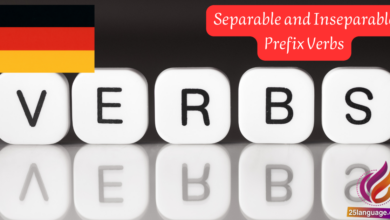The Imperative Mood in German

Ready to give direct commands and make requests in German? Understanding the imperative mood will unleash your ability to communicate instructions, advice, and suggestions wiht confidence! in this lesson, you’ll discover how to form imperatives for different subjects, explore polite ways to ask for things, and practice using commands in real-life scenarios. Whether you’re navigating a restaurant or guiding a friend, mastering the imperative is key to effective communication in German!
Exploring the Imperative Mood in German Language
The imperative mood is used in German to give commands, make requests, or offer invitations. To form the imperative for regular verbs in the second person singular, remove the ending of the verb stem and use the stem only. For the second person plural,the verb stem is used with the usual plural ending. Such as:
- Sing! (Sing!) - From the verb singen
- Lasst uns gehen! (Let’s go!) - From the verb gehen, using the plural form
When addressing someone formally (using Sie), you need to use the infinitive form of the verb with Sie placed before it. Such as:
- Geben Sie mir bitte das Buch! (Please give me the book!)
- Helfen Sie mir! (Help me!)
It’s also importent to note that with some irregular verbs,the form can change. For instance, from the verb sein (to be), the forms are:
| Form | German Example | English Translation |
|---|---|---|
| Du (informal singular) | Sei nett! | Be nice! |
| Ihr (informal plural) | Seid leise! | Be quiet! |
| Sie (formal) | Seien Sie vorsichtig! | Be careful! |
Understanding Commands and Requests through the Imperative
In German, the imperative mood is used to give commands, make requests, or offer invitations. The form of the verb changes depending on whether you are addressing one person informally (using “du”), one person formally (using “Sie”), or multiple people (using ”ihr”).Here are the key rules to form the imperative:
- Informal Singular (du): Take the stem of the verb and drop the “en” ending. Such as, the verb kommen (to come) becomes komm! (come!).
- Formal Singular/Plural (Sie): Always use the infinitive form of the verb followed by “Sie.” for example, Bitte kommen Sie! (Please come!).
- Informal Plural (ihr): Take the stem of the verb and add t. for example, kommt! (come!).
When issuing a command, it’s often polite to include “Bitte” (please) at the beginning or end of your request. Here are some examples:
| German Example | English Translation |
|---|---|
| Gib mir das Buch! | Give me the book! |
| Sei leise, bitte! | Be quiet, please! |
| Bitte, hören Sie mir zu! | Please listen to me! |
| Kommt zur Party! | Come to the party! |
Practical Applications of the Imperative in Everyday German
The imperative mood in German is imperative for giving commands, making requests, or offering advice. Its structure varies based on the subject pronoun.Here are the main rules in forming the imperative in German:
- for the ‘du’ form (informal singular), the verb is used without the ‘du’: Geh! (Go!)
- For the ‘ihr’ form (informal plural), the imperative is formed using the verb, keeping the same form: Geht! (Go!)
- For the ‘Sie’ form (formal), the verb is placed at the beginning, followed by ‘Sie’: Gehen Sie! (Go, please!)
- In the case of regular verbs, the infinitive form is often altered slightly, while irregular verbs can deviate from this pattern.
Commands can be made more polite by adding ‘bitte’ (please) after the imperative form. As an example: Mach das bitte! (Do that, please!) or Seid leise, bitte! (Be quiet, please!). In everyday situations, you might also hear suggestions such as Komm mit! (Come with!) or Sehen Sie die Stadt! (See the city!). Each structure serves a practical purpose, often found in directions, invitations, and social interactions.
| German Example | Rule | English Translation |
|---|---|---|
| Geh zum markt! | du form, remove ‘du’ | Go to the market! |
| Geht ins Kino! | ihr form, stays the same | Go to the cinema! |
| Trinken Sie Wasser! | Sie form, verb first | Drink water! |
| Kommt her! | du form | come here! |
Mastering the Art of Giving Orders: Tips for Using the Imperative
In German, the imperative form is crucial for giving direct commands, requests, or instructions. It’s essential to note that the form changes based on the subject you’re addressing. When speaking to someone informally (du), the verb is simplified by dropping the suffix -en. For example:
- Spiel! (Play!)
- Mach das! (Do that!)
When addressing a group informally (ihr), the imperative takes the form of the verb as it appears in the present tense:
- Spielt! (Play!)
- Macht das! (do that!)
For formal situations (Sie), the imperative is formed using “Sie” + the infinitive form of the verb:
- Spielen Sie! (Play!)
- Machens Sie das! (Do that!)
| German Example | Imperative Form | English Translation |
|---|---|---|
| Mach das! | du form | Do that! |
| Spielt! | ihr form | Play! |
| Haben Sie einen Moment! | Sie form | Have a moment! |
In Summary
Conclusion: Der Imperativ im Deutschen
Herzlichen Glückwunsch! Sie haben einen wichtigen Teil der deutschen Grammatik entdeckt: den Imperativ. Heute haben wir gelernt, wie man den Imperativ bildet und verwendet, um Aufforderungen und Anweisungen freundlich und klar zu formulieren. Sie haben erfahren, dass es einfache Formen für die Du-, Ihr- und Sie-Form gibt und dass die Verwendung des Imperativs Ihnen helfen kann, im Deutschen eindringlich und direkt zu kommunizieren.
denken Sie daran, die praktische Anwendung des Imperativs ist der Schlüssel! Versuchen Sie, ihn in Ihren täglichen Gesprächen zu integrieren—sei es beim Kochen (zum Beispiel: „Gib mir das Salz!“), beim Lernen (z. B.: „Wiederhole das Wort!“) oder beim Planen eines Ausflugs (z. B.: „Komm mit uns!“). Setzen sie das Gelernte in die Tat um,und Sie werden schnell feststellen,wie viel fließender und natürlicher Ihr Deutsch wird.
Bleiben Sie motiviert! Jeder Schritt, den Sie in Ihrer Sprachreise machen, bringt Sie näher an Ihr Ziel. Nutzen Sie Ihre neu gewonnenen Kenntnisse und ermuntern Sie sich selbst, verschiedene Situationen im Alltag zu schaffen, in denen Sie den Imperativ verwenden können. Machen Sie weiter so, und bald werden Sie sich in der deutschen sprache noch sicherer fühlen!
Viel Erfolg beim Üben und bis zur nächsten stunde!





























